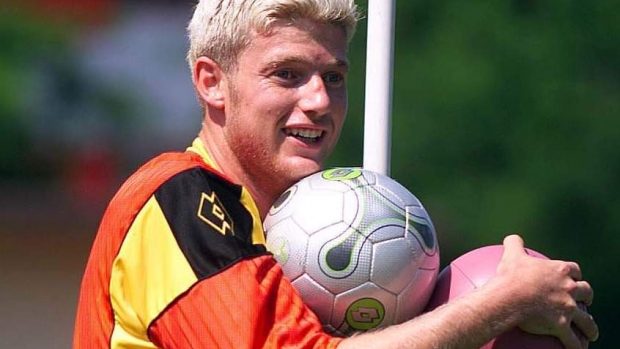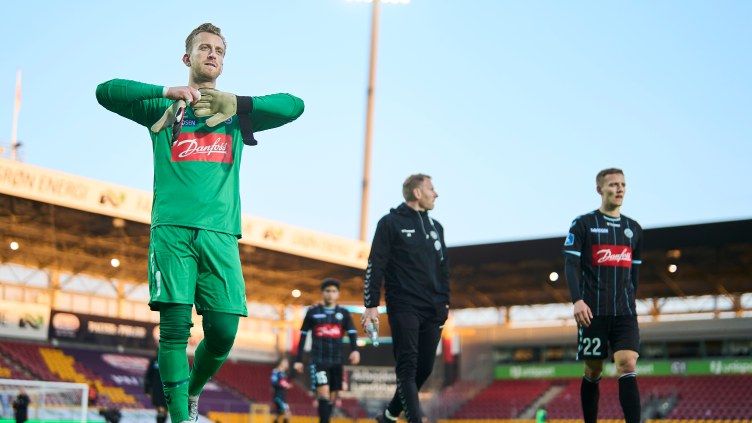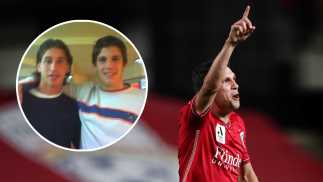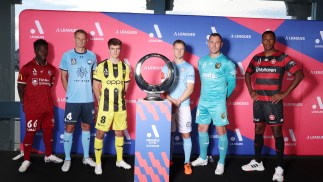Ufuk Talay is the most successful coach in Wellington Phoenix’s history. As the former Galatasaray midfielder prepares for Friday night’s Elimination Final in Adelaide which could be his last match in the ‘Nix dugout, he reflects on his journey and experiences with KEEPUP’s Sacha Pisani.
There is little time for reflection as Ufuk Talay plots the downfall of Adelaide United, but there is still a moment to pause and think about his time with Wellington Phoenix.
“One thing I hope is that I brought expectation,” he told KEEPUP, ahead of what could be his last game in charge of the Phoenix – Friday night’s Elimination Final at Coopers Stadium.
BUY TICKETS TO THE ELIMINATION FINAL BETWEEN ADELAIDE & WELLINGTON
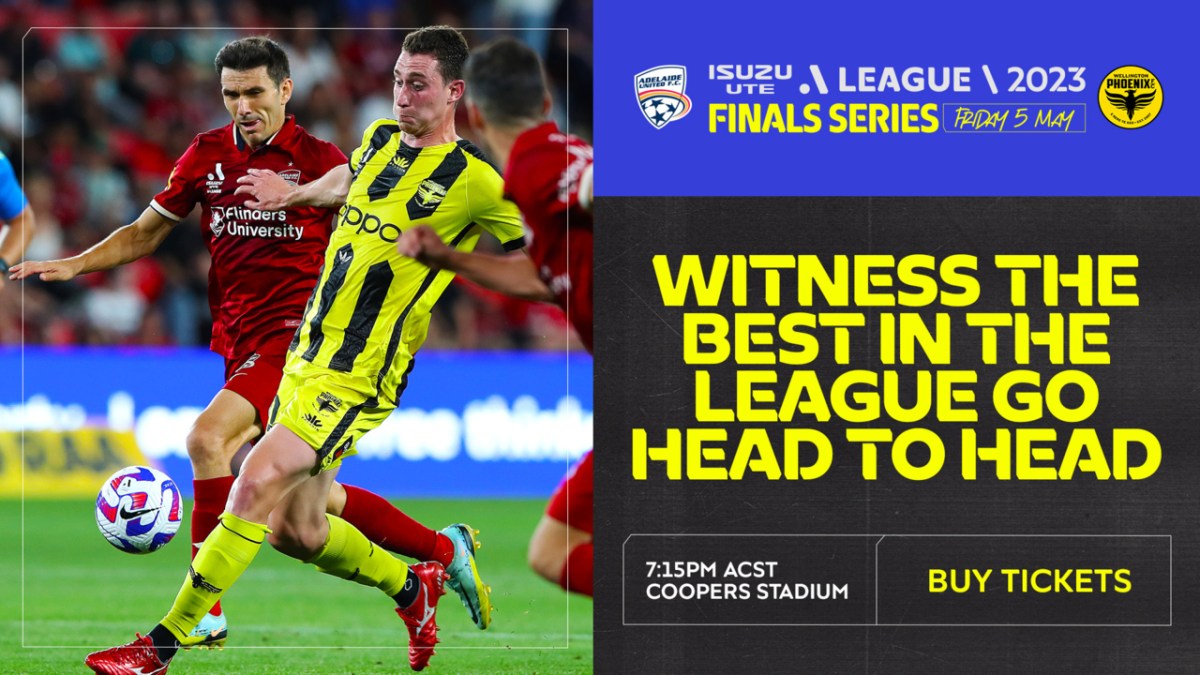
BUY TICKETS TO THE ELIMINATION FINAL BETWEEN ADELAIDE & WELLINGTON
Talay will depart Wellington at the end of the season as the most successful coach in the club’s 16-year history. Opting to pursue a new coaching challenge, he will be replaced by his right-hand man Giancarlo Italiano.
“That’s something I believe I brought to the club,” said Talay as the ‘Nix feature in the finals for the third time in four years. “Regardless of resources at times. At the moment with where the club (is at), with facilities and the academy , they’re in a fantastic place.
“The reality is we get paid to try to win games and we try to do that in a certain way. That’s something I believe I brought – expectations. At the end of the day, it’s 11 v 11 and we go out and play. Sometimes if the opponent is better than you, you take your hat off to them.”
READ MORE ON KEEPUP
IRANKUNDA: ‘Only him and Messi’ – Extraordinary tip-off agents are receiving
ISUZU UTE A-LEAGUE FINALS GUIDE: Everything you need to know
AWARDS SEASON: Every A-Leagues club’s end of season award winners
REFEREES: Football has a chance to show how much they are valued
INS AND OUTS: Victory announce four exits, including Socceroo who played just 46 minutes
PODCAST VIEW: Transfer records set to shatter this off-season in ‘really important period’ for the A-Leagues
In his own words, Talay wears his heart on his sleeve. He is passionate with a hard exterior, but below the surface, there has been a period of self-growth in Wellington, where he has enormous gratitude for the outfit.
“I think I’ve grown as a person. I’m more aware of myself as well. I have a lot more empathy at times I believe,” he said.
“Although I may not show it, but I do towards staff and players. They might not see it at times, but I do.”
Learning from Frank Arok
There is so much to Talay – a former midfielder who made waves in Europe before the A-Leagues foundation in 2005.
The 47-year-old emerged at Marconi Stallions in the NSL. He went from Steve Corica’s understudy to partner in midfield, while also playing alongside the likes of Socceroos great Mark Schwarzer, Andy Harper, Gary van Egmond, Jean-Paul de Marigny and Kimon Taliadoros.
This was at a time where the historic Australian club were led by the legendary and late Frank Arok, who also coached the Socceroos before he passed away in 2021.
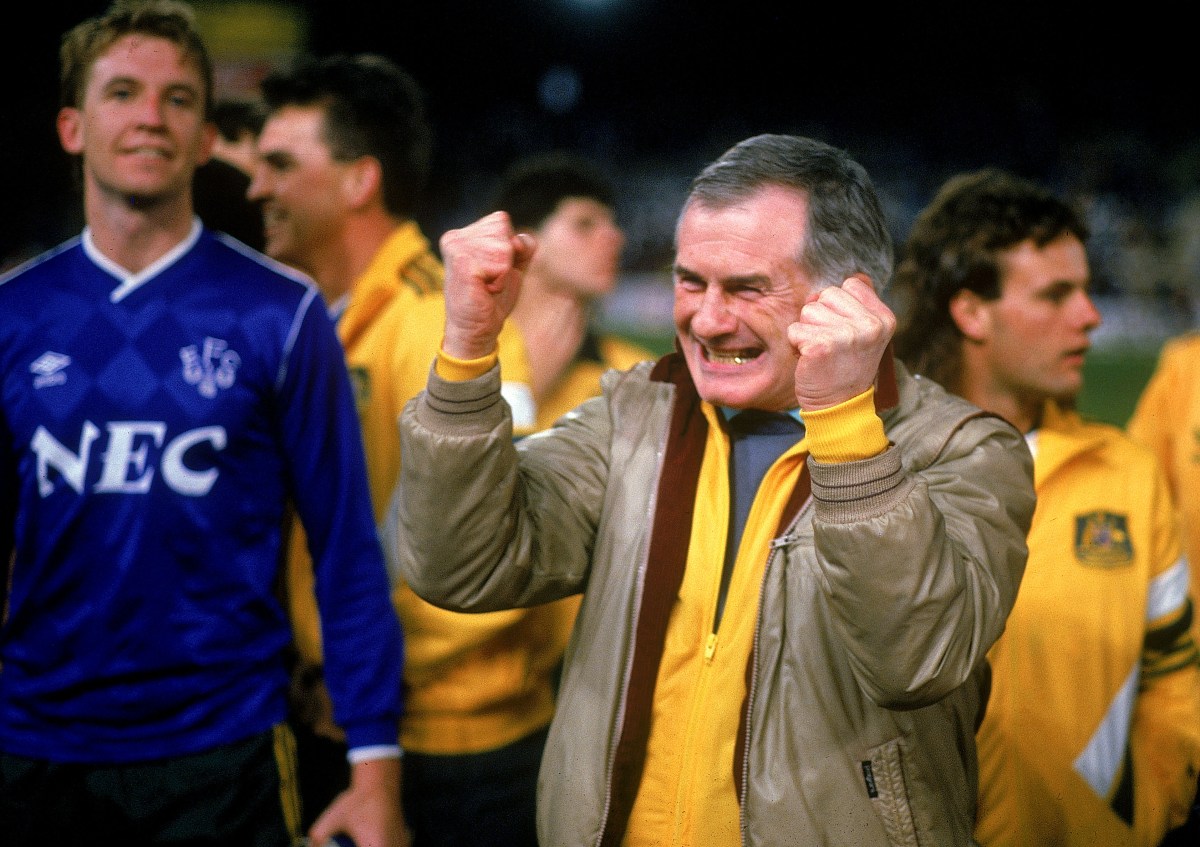
In his first season with Arok’s Marconi, Talay won the 1993 NSL Championship. With that success, he became the youngest Grand Final winner at 17 years and 51 days.
“Frank gave me the opportunity, which ended up giving me a career in the game,” Talay said.
Those two years with Arok remain close to his heart. They helped mould Talay.
“The passion and the desire Frank had to win,” he said.
“I think he spent a lot of time… now we have so much more technology and the way we analyse games. He spent many hours in his office with the old VHS cassettes, forward and rewinding and watching games. The best thing he did was pass on his knowledge to us to be able to become better.
“Even his training sessions were very technical and worked on our technique. He was way ahead of his time in that sense. The biggest thing for me, he was also a father figure and tried to help us achieve what we wanted to achieve.”
A family friend’s sly move and playing for Galatasaray
Talay spent three years at Marconi before making the big move to Turkish powerhouse and record 22-time champions Galatasaray in 1995.
It was a life-changing transfer for the then-19-year-old, but if his father had his way, the midfielder would have been playing for Trabzonspor instead.
“My father back then in the old days, now you have YouTube highlights of players, mine was on VHS. He sent it over to one of his mates,” Talay explained.
“It was actually supposed to go to Trabzonspor but dad’s mate is a massive fan of Galatasaray so he dropped it off there instead of Trabzonspor.
“They watched it and liked what they saw. The season after I went to join them in Germany for pre-season. Played a few games with them and they wanted to sign me. The opportunity came to stay there.
“Marconi got around $300,000 for me, which back then, was decent money.”
In his first season, Talay found himself playing alongside legendary forward Hakan Sukur, Tugay Kerimoglu, Okan Buruk – who is now head coach of Galatasaray – Bulent Korkmaz, Dean Saunders and Brad Friedel.
It was a team led by Liverpool and Scottish great Graeme Souness.
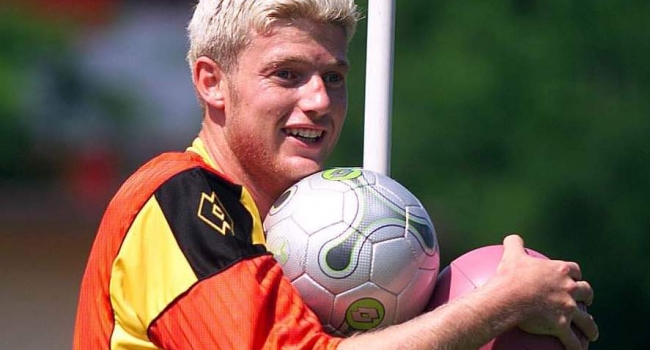
Across his seven-year association with Galatasaray, which included loan stints at Antalyaspor, Karabukspor, Bursaspor and Nimes Olympique, Talay was also coached by Fatih Terim and teamed up with Gheorghe Hagi, Claudio Taffarel, Emre Belozoglu and Gheorghe Popescu as Gala won the 1999 league crown.
“It took a bit of time to adapt. Istanbul is a big city and Galatasaray are a big club with big expectations,” Talay, who is of Turkish descent, said.
“Also some very big players that play for that team. By round nine or 10 is when I actually started to play that season and from there, I was involved in every game which is great as an 18 or 19-year-old.”
He continued: “You’re working with quality people and also people who are very good at what they do. For me as a player, great moments to develop and get better. I think that experience helped me in my coaching career too.”
That iconic Souness incident
Souness wrote his name firmly into the history of Galatasaray with his defiant flag plant.
Galatasaray had just conquered bitter Istanbul rivals Fenerbahce in the 1996 Turkish Cup final – a goal in extra time via Saunders giving Souness his first piece of silverware at the club.
Afterwards, Souness infuriated Fener fans when he planted a Galatasaray flag in the centre-circle of Sukru Saracoglu Stadium – a hostile environment and the home of their foes.
Talay, who keeps in contact with some of his former teammates – including current boss Okan, started that decider and watched the drama unfold.
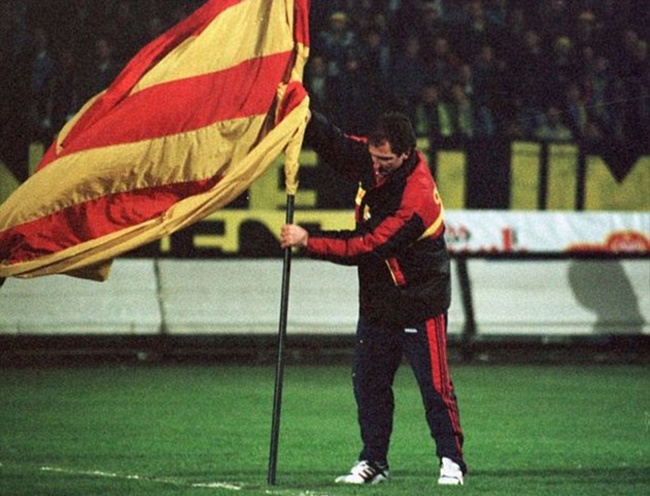
“It is a massive derby. That was my first season at the club. We had a chance to win the cup,” the former Australia youth international said.
“It was very nice to win a trophy in my first year there and playing away at Fenerbahce, it’s a massive derby and very emotional. Graeme got pretty emotional too and got the flag and put it in the middle stadium.
“If there wasn’t a big fence, we’d all be running into the change rooms. It’s part of Galatasaray’s history now. There’s shirts with that photo of him putting the flag down.
“It’s a massive moment. In Turkey, if you don’t win the title it’s important to win the derbies.”
Leaving no stone unturned
After coaching Australia’s Under-20 side for two years and working under Steve Corica at Sydney FC – where he won the 2005-06 Championship as a player – Talay has come into his own in Wellington.
Since earning the opportunity for his first senior role with the ‘Nix, he has left no stone unturned, while the style of football has earned plaudits far and wide.
There has been constant player turnover, but the 47-year-old has routinely rebuilt new teams with the Phoenix. Just look at 2022-23 – Gary Hooper, Reno Piscopo, Jaushua Sotirio, James McGarry and Gael Sandoval were among the departures, while Oskar Zawada, Bozhidar Kraev, Yan Sasse, Steven Ugarkovic and Kosta Barbarouses were among the recruits.
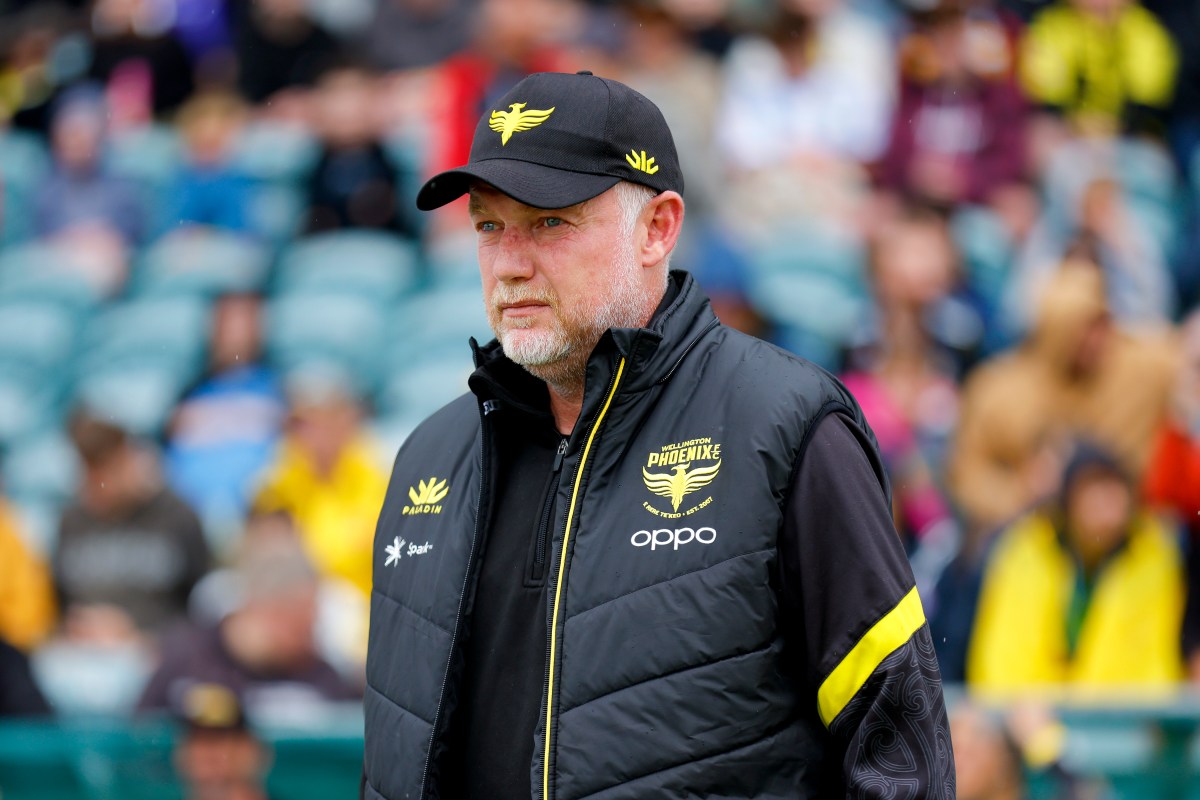
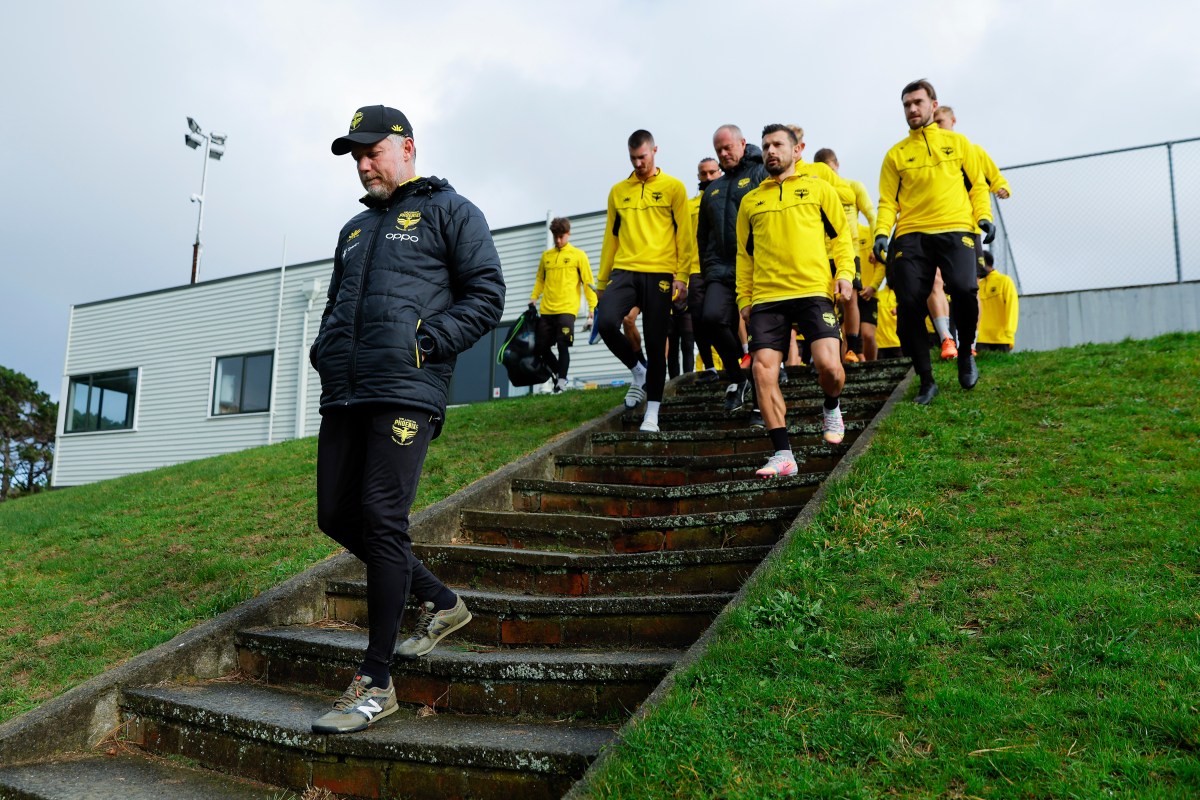
“For us, the first season when we came in. Myself and Chiefy (Italiano), we spent a lot of hours in the office going through players,” Talay recalled.
“I think we went through 400-500 players to make sure we find the right players.
“As a coach, if you have a clear identity of what you think the game looks like to you in your playing style and principles, finding players becomes easier because you’re looking for certain attributes and how we can utilise those attributes on the park.
“Firstly, we always make sure they’re good for the change room. I like to speak to players before we sign them just to get a gauge of what they’re like, what type of person they are, are they coming with the right mindset to be successful? Are they ambitious like myself and (for) the club to be successful? Especially with the foreigners, we have to make sure they’re not just here to have a good time.”
Coaching the only team in New Zealand
The Wellington job is no ordinary gig. They are the only New Zealand representative in the 12-team Isuzu UTE A-League – and the only fully professional club in their entire nation.
It is a unique challenge and one Talay has embraced.
“It’s not easy being the only Kiwi club in the competition. Sometimes, I don’t think the ‘Nix get the accolades they deserve as well. We don’t just produce Kiwi talent,” he said.
“In my tenure, we’ve given opportunities to young Australian players that have thrived. Like Cammy Devlin, (who) has gone over to Hearts. Even we brought over players, trying to think outside the box, we brought Reno Piscopo back over from Italy. Even Nicholas Pennington from Italy.
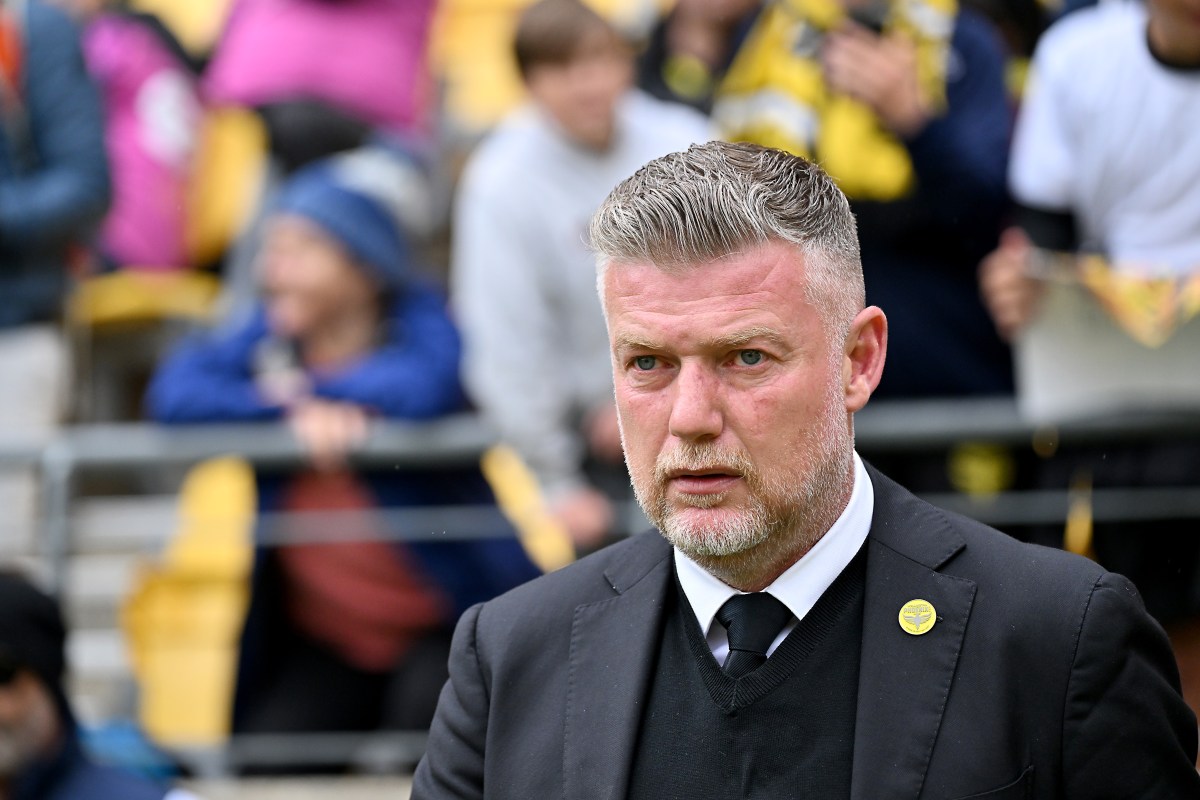
“We’ve given chances to young Kiwis and Australians at the same time. We do provide a pathway. Wellington do take a lot of load in New Zealand as the only professional club to produce players. I think there was around 65 players that have currently represented New Zealand in all age groups. The club are providing a pathway.
“We’re very proud as a club of what we provide and the opportunities we provide to the young players, male and female, coming through.”
He continued: “The club realise where we sit in the landscape of football. We’re not Real Madrid and don’t sign players for millions and millions of Euros. We develop our own.
“We’re heavily reliant on the academy to produce players for the first team. Then it’s our job to be able to recognise the moments to give them opportunities, when to throw them into the deep end and when to pull them back out again.”

